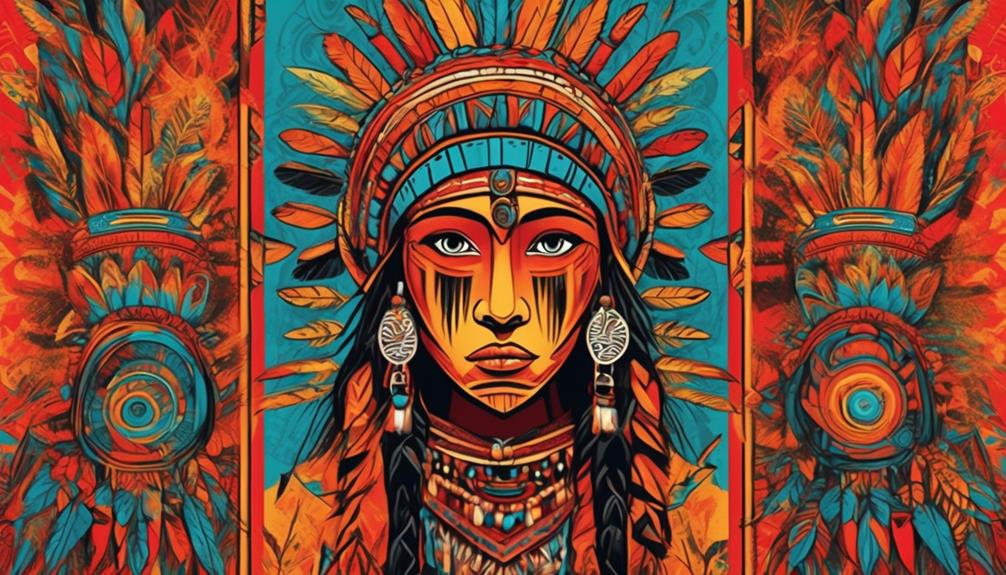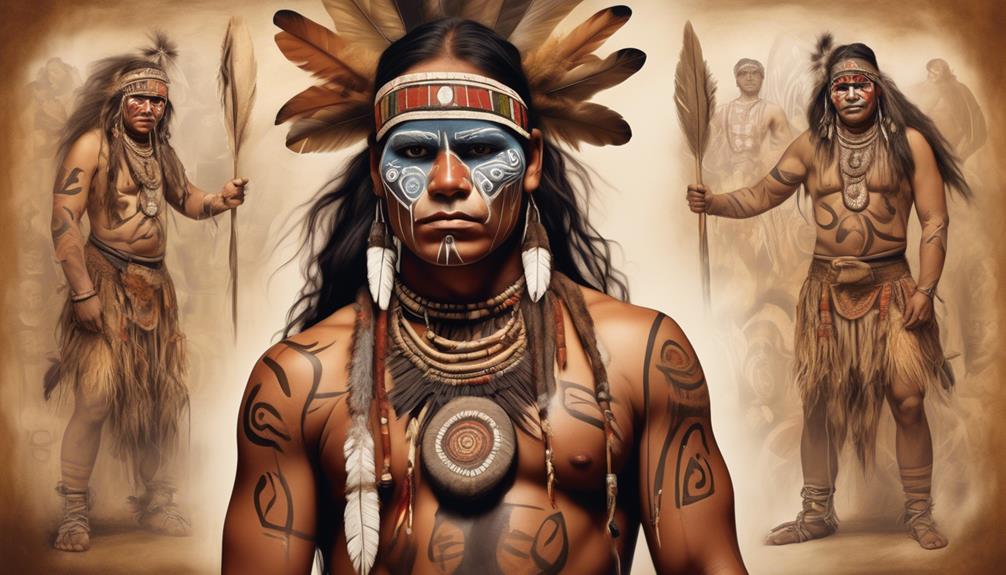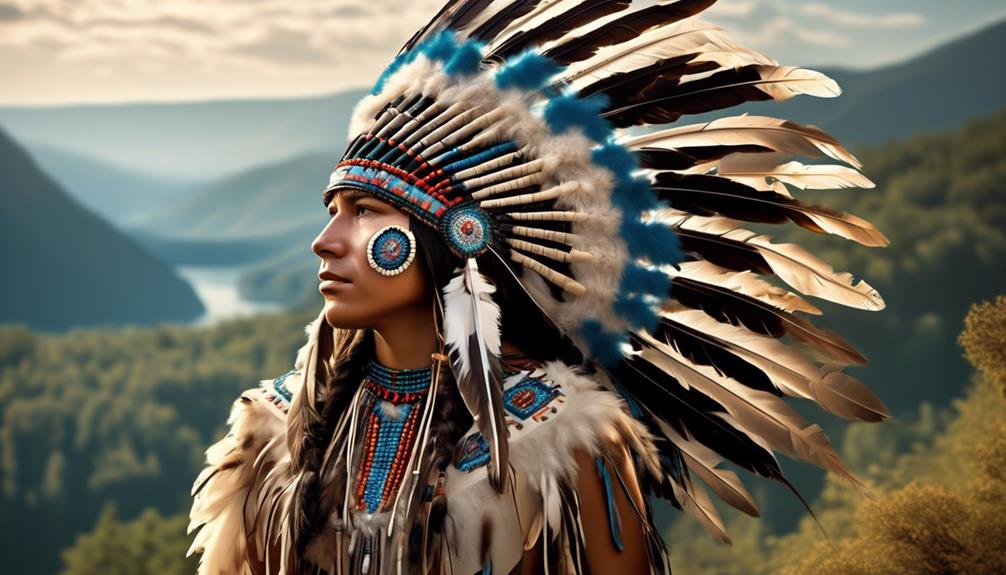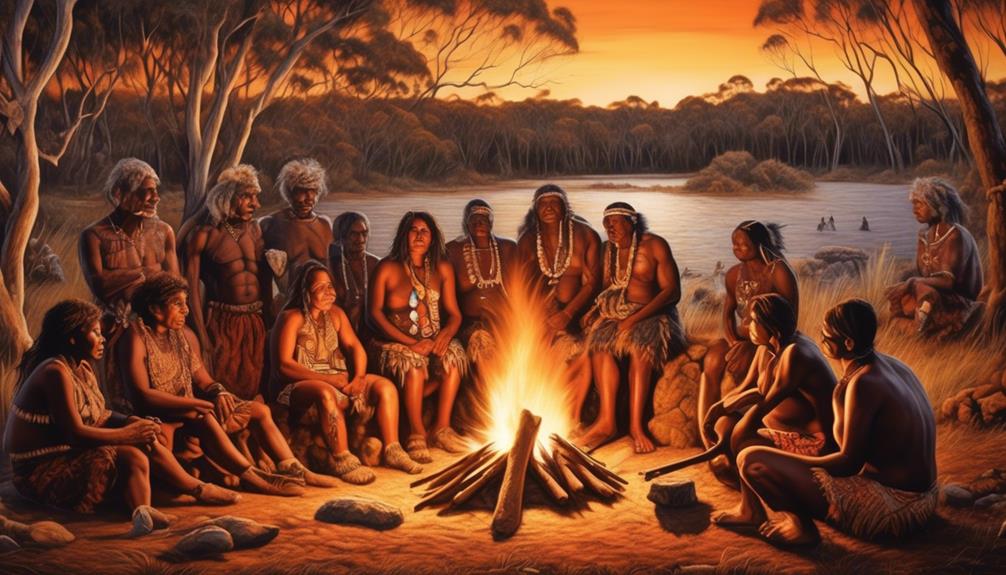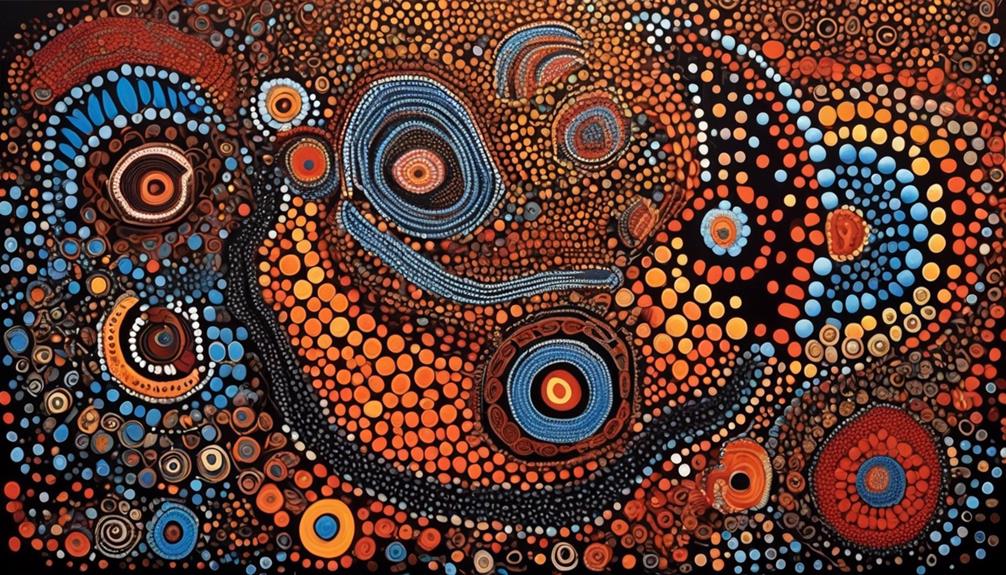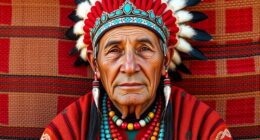Did you know that according to the 2020 United States Census, over 5.2 million people identified as American Indian or Alaska Native alone, or in combination with one or more other races?
While these terms are often used interchangeably, there are significant historical, cultural, and political implications behind the use of 'Indigenous' versus 'Indian.'
Understanding the complexities and nuances of these terms is crucial in recognizing the impact of colonialism, reclaiming indigenous identities, and addressing the challenges faced by indigenous communities today.
Key Takeaways
- 'Indian' originated from Christopher Columbus' mistaken belief of reaching the East Indies in 1492.
- 'Indigenous' stems from the Latin term 'indigena', meaning native or original inhabitants.
- The evolution of these terms reflects shifting power dynamics during the colonial era.
- Understanding the historical origins provides insight into the impact of colonization on language and identity.
Historical Origins of 'Indigenous' and 'Indian
The terms 'indigenous' and 'Indian' have distinct historical origins that reflect the complex interactions between colonizers and native populations. Understanding their historical context is crucial in grasping the nuances of their usage.
The word 'Indian' originated from Christopher Columbus' mistaken belief that he'd reached the East Indies when he landed in the Americas in 1492. This misnomer persisted despite the eventual realization of his error. On the other hand, 'indigenous' stems from the Latin term 'indigena', which refers to native or original inhabitants of a place. The linguistic evolution of these terms mirrors the shifting power dynamics and perspectives during the colonial era.
The historical context of these terms reveals the impact of colonization on language and identity. 'Indian' carries the weight of misinterpretation and perpetuates a Eurocentric view of the Americas, while 'indigenous' emphasizes the native peoples' original connection to their land.
Understanding the historical origins of 'indigenous' and 'Indian' provides insight into the complexities of language and the lasting effects of colonialism on identity and perception.
Cultural Connotations and Usage of the Terms
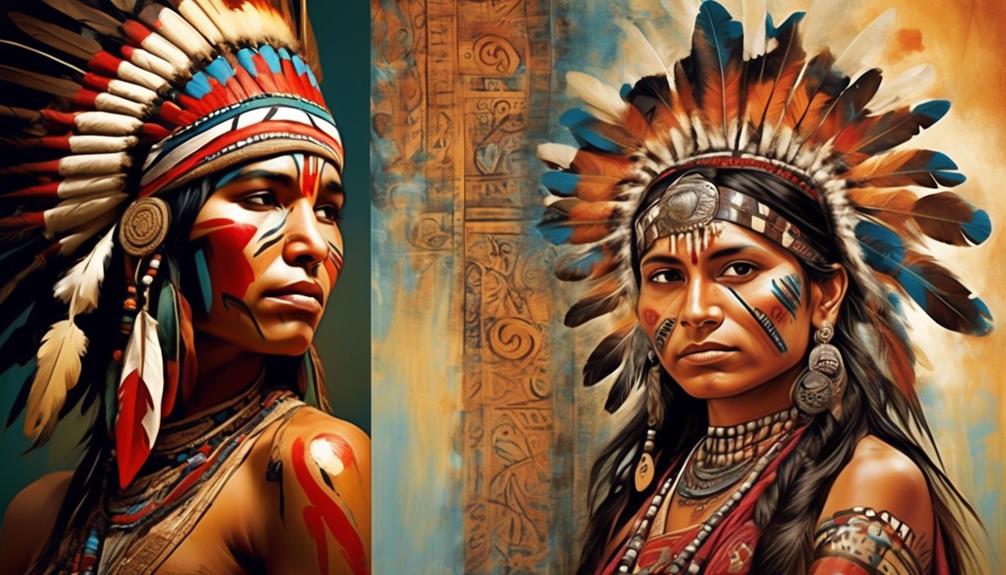
As you explore the cultural connotations and usage of the terms, you'll notice how the historical origins of 'indigenous' and 'Indian' have shaped their significance in contemporary discourse. Understanding the cultural perceptions and linguistic nuances associated with these terms is essential for respectful and accurate communication.
| Cultural Perceptions | Linguistic Nuances |
|---|---|
| Indigenous peoples are often associated with a deep connection to the land and traditional customs. | The term 'indigenous' emphasizes the original inhabitants of a place and acknowledges their distinct cultural identities. |
| The term 'Indian' has historical roots in the European misnomer for the indigenous peoples of the Americas. | 'Indian' is often viewed as a colonial construct and can carry negative connotations due to its inaccurate origins. |
| Indigenous communities prefer to be referred to by their specific tribal or cultural identities. | 'Indian' is often considered outdated and inaccurate, and using specific tribal or cultural names is preferred for respectful communication. |
These cultural perceptions and linguistic nuances highlight the importance of using terminology that respects and honors the diverse identities and histories of indigenous communities. It is crucial to be mindful of the impact of language and to continuously educate oneself on appropriate terminology.
Impact of Colonialism on Terminology
Colonialism significantly influenced the terminology used to describe indigenous peoples, shaping their identities and perpetuating historical inaccuracies. The colonial influence led to the evolution of terminology, as various terms were imposed on indigenous communities by colonizers, often based on misunderstandings or ethnocentric perspectives. This resulted in the creation of a lexicon that not only misrepresented indigenous cultures but also reinforced power dynamics and colonial agendas.
For example, the term 'Indian' was mistakenly applied to indigenous peoples by European explorers who were seeking a route to India. This misnomer has persisted over centuries, impacting the way indigenous communities are perceived and understood globally.
Furthermore, colonial powers often used derogatory or dehumanizing terms to describe indigenous peoples, further marginalizing and devaluing their rich and diverse cultures. The impact of colonialism on terminology continues to be felt today, as many terms rooted in colonial perspectives are still in use.
Addressing this issue requires a conscious effort to decolonize language and reclaim accurate and respectful terminology that reflects the true identities and histories of indigenous peoples.
Contemporary Reclamation and Redefinition of Identities
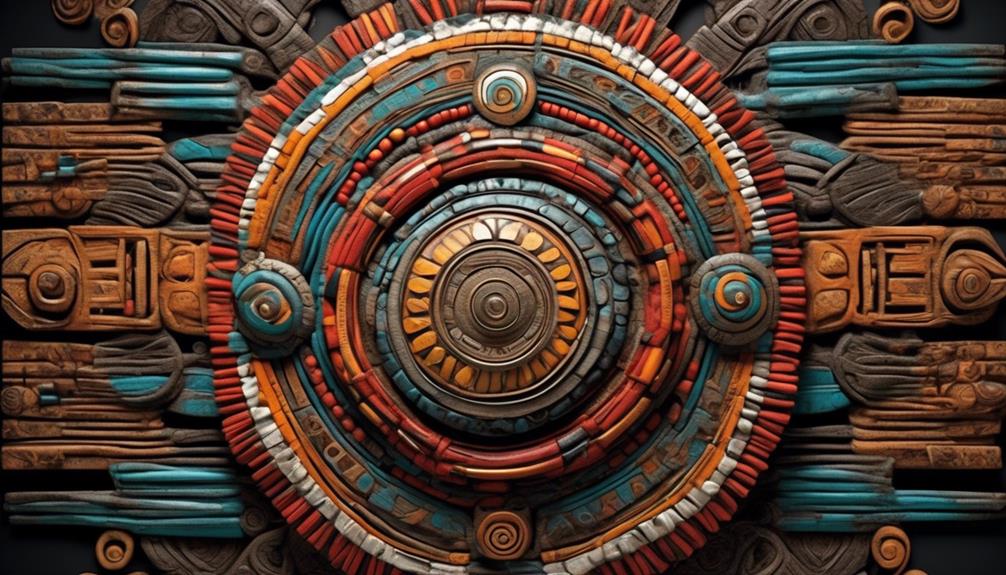
Have you noticed how indigenous communities are actively reclaiming and redefining their identities in contemporary society? In recent years, there's been a significant resurgence in efforts to reclaim and redefine indigenous identities, driven by a desire to restore cultural pride and challenge historical misrepresentations.
Here's why this movement is so important:
- Cultural Revitalization: Indigenous communities are reclaiming traditional practices, languages, and customs that were once suppressed or marginalized. This revitalization serves as a powerful assertion of identity and a means of preserving heritage for future generations.
- Embracing Tradition: Many indigenous groups are embracing their traditional clothing, music, and art forms, infusing them with modern elements to create a contemporary yet authentic representation of their culture.
- Challenging Stereotypes: Through social media, art, and activism, indigenous individuals are reshaping the narrative around their identities, challenging outdated stereotypes and presenting multifaceted, nuanced representations of modern indigeneity.
This contemporary reclamation and redefinition of identities not only empowers indigenous communities but also enriches the broader societal understanding of diverse cultural identities.
Implications for Indigenous Communities Today
Indigenous communities continue to navigate the complexities of contemporary society while striving to maintain their cultural heritage and traditions. The implications for Indigenous communities today are multifaceted, encompassing challenges related to cultural preservation and political representation.
In the face of globalization and modernization, Indigenous peoples are confronted with the imperative to preserve their cultural identity, languages, and traditional practices. This necessitates a delicate balance between embracing aspects of modernity while safeguarding their rich cultural heritage.
Additionally, political representation remains a crucial issue for Indigenous communities, as they seek to have their voices heard in matters that directly affect their lives and territories. This involves advocating for policies that respect Indigenous rights, land stewardship, and self-governance.
Furthermore, the need for genuine inclusion in decision-making processes at local, national, and international levels is essential for ensuring Indigenous perspectives are integral to contemporary governance. Navigating these challenges requires a nuanced approach that honors the past while addressing the present needs of Indigenous communities.
Frequently Asked Questions
How Do Indigenous Communities Feel About the Use of the Term "Indian" in Historical Documents and Literature?
When discussing historical terminology in documents and literature, consider the Indigenous perspective. Many Indigenous communities feel that the term 'Indian' is outdated and carries negative connotations from colonial times.
They're engaging in cultural reclamation and identity redefinition by advocating for the use of more respectful and accurate terms. It's important to recognize and respect their agency in choosing how they're represented in historical documents and literature.
What Are Some Examples of Contemporary Indigenous Reclamation and Redefinition of Identities?
In contemporary activism, Indigenous communities are reclaiming and redefining their cultural identities. This includes revitalizing traditional languages, reclaiming sacred lands, and challenging stereotypes and misrepresentations.
Through initiatives like cultural revitalization programs, art, and media, Indigenous people are asserting their own narratives and challenging historical misconceptions. These efforts are crucial in reshaping how Indigenous identities are understood and respected in today's society.
How Has the Impact of Colonialism Affected the Terminology Used to Describe Indigenous Communities?
The impact of colonialism has deeply affected the terminology used to describe indigenous communities. The language and labels imposed by colonizers have shaped how indigenous people are perceived and understood.
This has spurred a reclamation and redefinition of identities within these communities, as they seek to assert their own terms and narratives.
The colonialism effect on terminology continues to influence discussions around indigenous identity and representation.
Are There Specific Cultural Connotations Associated With the Term "Indigenous" as Opposed to "Indian"?
Cultural implications and historical perspectives shape the indigenous terminology.
Contemporary reclamation efforts underscore the importance of using the term 'indigenous' to honor the diverse and rich cultures of native communities.
'Indian' carries linguistic and historical connotations that are linked to colonialism and misrepresentation.
Embracing the term 'indigenous' acknowledges the unique identities and traditions of native peoples, reflecting a more respectful and accurate portrayal.
What Are the Implications for Indigenous Communities Today in Terms of Government Recognition and Support?
In today's world, government recognition and support carry immense implications for indigenous communities. The level of support and acknowledgment from the government directly impacts contemporary reclamation efforts and the overall well-being of these communities.
Recognizing the historical impact of colonialism and understanding the cultural connotations of historical terminology is vital in providing meaningful support. This acknowledgment paves the way for a more equitable and respectful relationship between indigenous communities and the government.
Conclusion
You've learned about the historical origins and cultural connotations of 'indigenous' and 'Indian', as well as the impact of colonialism on these terms.
Today, indigenous communities are reclaiming and redefining their identities. This process is like a phoenix rising from the ashes, representing the resilience and strength of indigenous people in the face of historical oppression.
Keep exploring and learning about the complexities of these terms and their implications for indigenous communities today.
